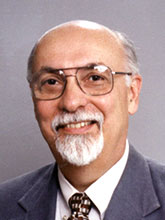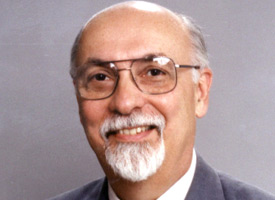With Dr. Bruce Hartung
The July “Pressure Points” offered advice from newly placed pastors to other newly placed pastors and stimulated a considerable number of responses.

The August column took up the theme of shared duties and activities in which all members of the body of Christ are involved in collegial ways — with each member bringing gifts to the community, but with none of them occupying a more holy or elite position than any other member. Its conversation was in response to the July column.
This September “Pressure Points” takes up the following advice offered in the July column: “Build at least one close friendship in the church with an individual or couple, and invite them to your home and to do things with you as friends. At least one close friendship in the church is critical.”
Among responses to this piece of advice are three very thoughtful ones that follow.
First response: You asked pastors two and sometimes three years out of the seminary for advice for pastors going to their first call. I might disagree with the wisdom of doing that. It took me 15 years to sort my “issues” from [those] of others and find mine were more serious.
I have been a parish pastor for 30 years and I think this qualifies not as just bad advice but very bad advice. I agree that a close friendship is essential, but in my experience it is unwise and detrimental to have it in the parish. A pastor in the circuit, a pastor from another denomination, a next-door neighbor, a funeral director, just about anyone else would be preferable to one in the congregation. … My one caveat to this is [that] this might be generational. Younger pastors, younger people might look at this differently than my generation. However, the “wisdom” I impart was passed on to me by the generation before me. It has been wise for two generations and I expect it still is.
Second response: You walk a very fine line as pastor, becoming friends with members of your congregation. Be very careful! Too often friendships lead to compromising and corrupting the integrity of one’s vocation. Friendships can turn sour, and soon your friends will seek to hold you, the church — its ministries and mission — hostage by withholding the gifts of stewardship. If you want friends, network outside your congregation (in both healthy ways and relationships).
Third response: In the conversation about friendships, please put into the conversation the wife and children of the pastor. The new pastor has a place to go and to work. Even the children may have school or preschool to attend, where they will make friends. His wife may not work, may be in a location apart from her family, and may be even more in need of a social network. This may be the hidden gem in the advice the new pastor gave to others. He said to “build at least one close friendship in the church with an individual couple.” This pays attention to the social needs of his wife. Good for him. By the way, I am one of these wives.
Social relationships are critical to the health and well-being of us all. Research clearly suggests that warm, caring and close relationships give us all not only more of a sense of well-being, but also powerfully affect our body chemistry in positive ways. The need is clear. How to meet the need is more complicated.
Readers have offered very important perspectives on this. One very common theme of these and other responses is that the social and friendship life of the pastor, spouse and family should not be confined to the congregation. Relationships in the community are vital. Additionally, there is considerable sentiment that, while relationships with other LCMS clergy, spouses and families are important, friendships should not be confined to that circle, as well.
All that would seem to mean that engagement in the community and in its activities — where meeting people outside of the congregation and the LCMS will occur — is very important. This was also one piece of advice from one of the new pastors in the July column.
Attention to volunteer and service groups, community and school organizations, as well as civic groups, might be one place to start.
“Pressure Points” is open to more ideas from others about this topic.
The Rev. Bruce M. Hartung, Ph.D., is professor of Practical Theology at Concordia Seminary, St. Louis. He can be reached at hartungb@csl.edu.

